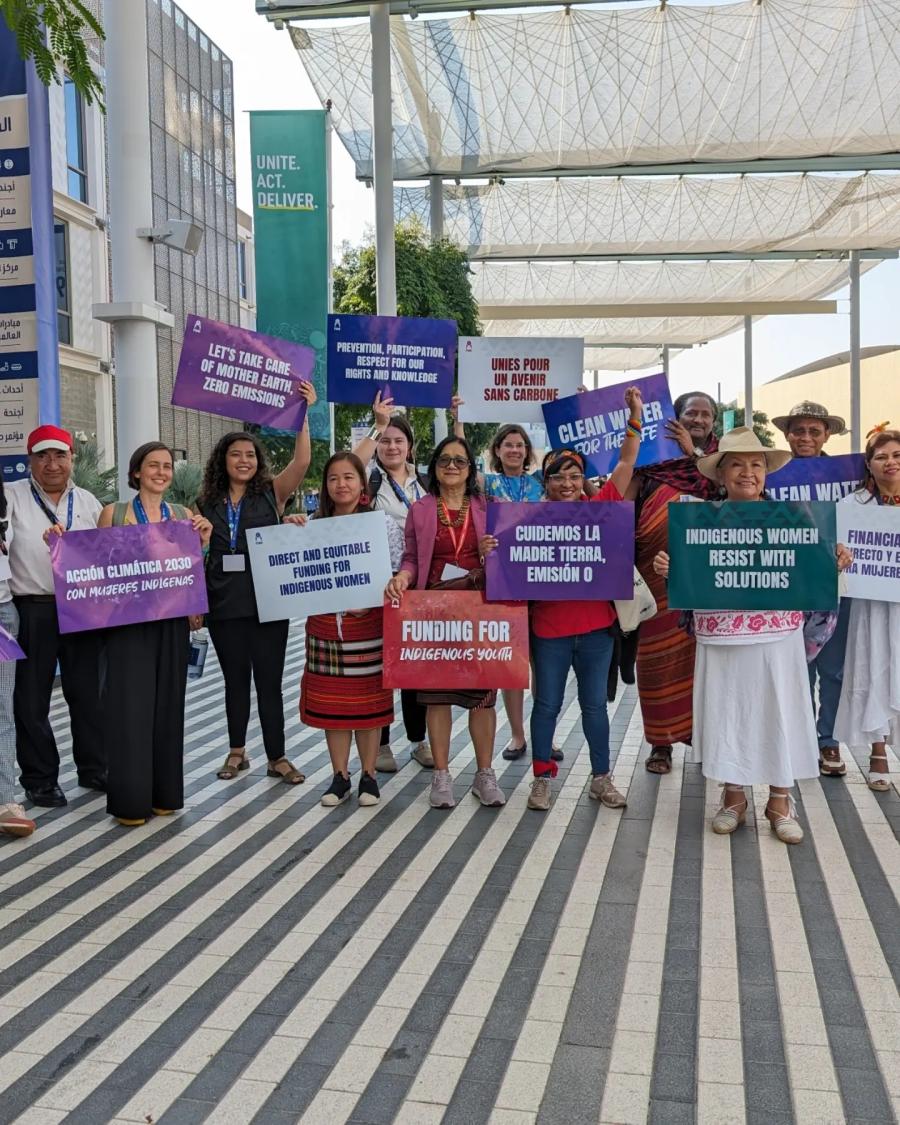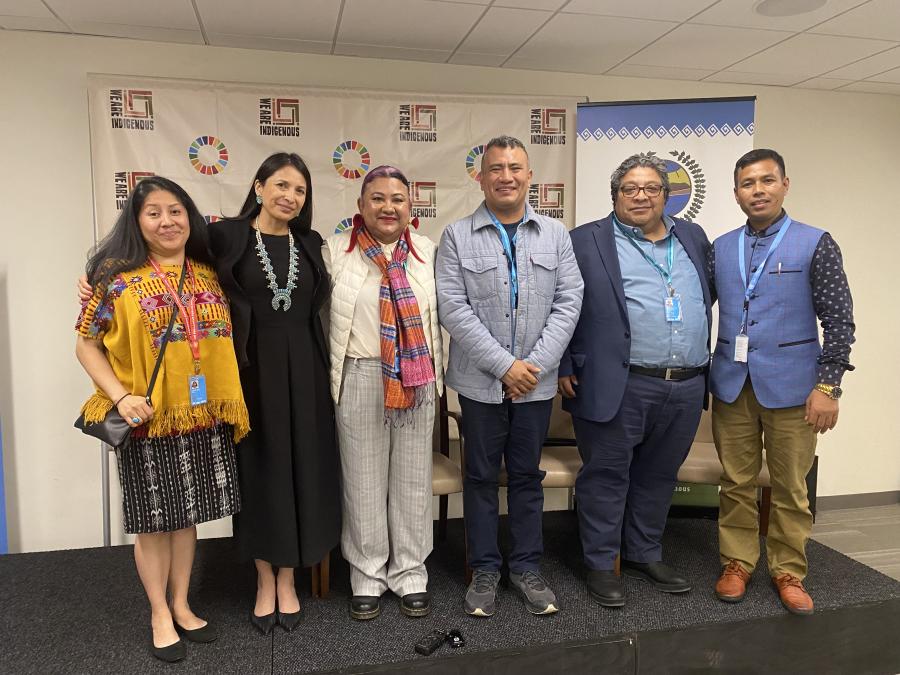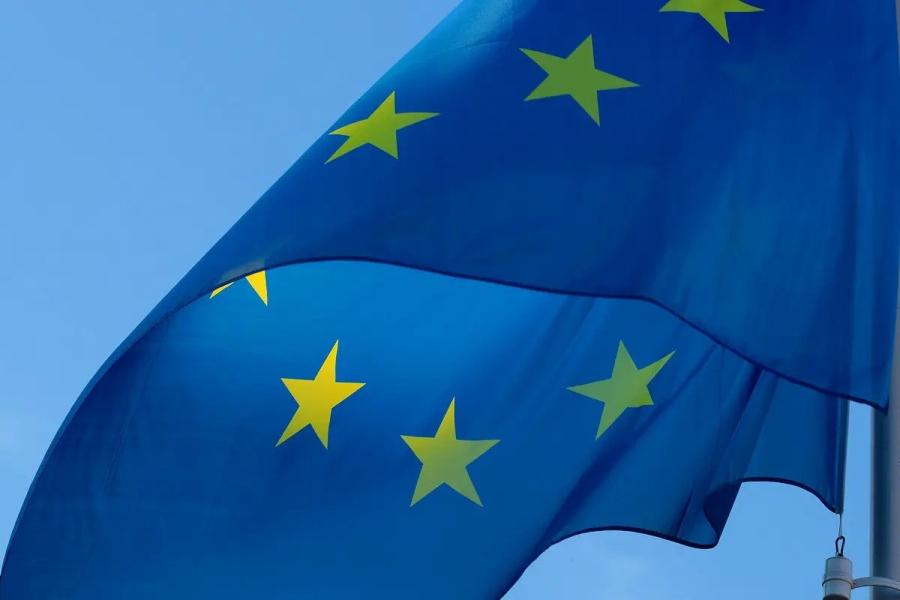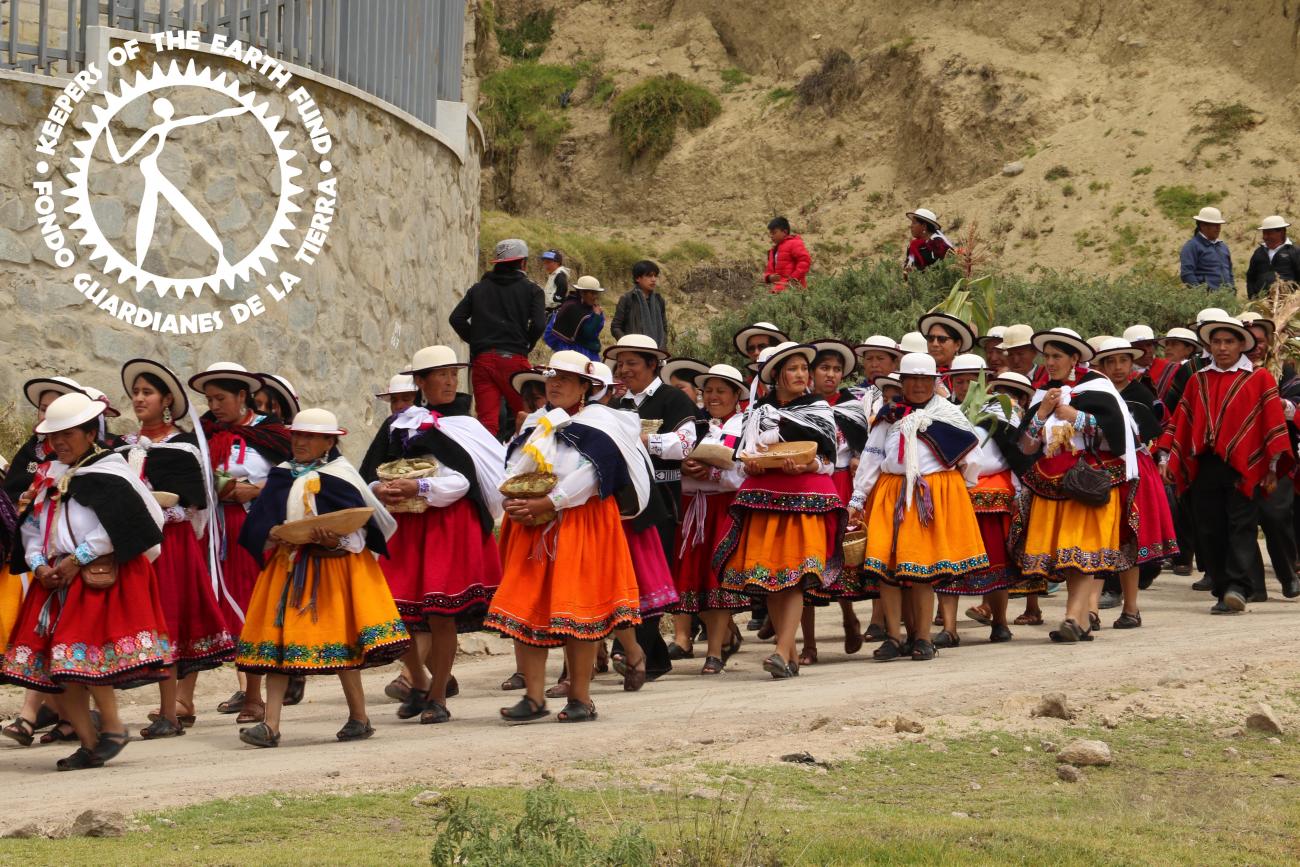
Instituto Superior Pedagógico “Quilloac” Bilingüe Intercultural’s project in Ecuador will strengthening the Kichwa Kañari language through the use of mobile apps for children.
Cultural Survival’s Keepers of the Earth Fund provides small grants designed to support Indigenous Peoples’ community advocacy and development projects. Since 2007, the Fund has provided nearly $2.6 million in grants and technical assistance to over 400 Indigenous-led projects in 65 countries around the world. Cultural Survival is proud to announce the following 30 grant partners in 19 countries as part of our 2018 giving cycle, totaling $135,700.
The Fund provides grants up to $10,000 that go directly to grassroots Indigenous organizations and groups to support their self-designed projects based on local, traditional values. Projects address a vast array of economic and cultural development strategies including cultural retention, language revitalization, food sovereignty, climate change, gender equality, battling extractive industries, Free, Prior and Informed consent, leadership and governance.
Consejo de Mayores y Mayoras Iriria Jtechӧ Wakpa - Bribri (Costa Rica)
Strengthening communication and legal monitoring to defend Cabagra lands
In the territory of Iriria Bribi Sá Ká (Cabagra), members of Consejo de Mayores y Mayoras Iriria Jtechӧ Wakpa are working to better defend and conserve the Bribri territory and revitalize Bribri culture. Through the development of communication strategies and by acquiring cameras, recorders, and other tech devices, they will strengthen and safeguard legal documentation, facilitate communication in judicial processes, and increase radio production to promote their culture throughout the territory.
Instituto Superior Pedagógico “Quilloac” Bilingüe intercultural - Kichwa (Ecuador)
Strengthening the ancestral language Kichwa Kañari through technology
In the province of Cañar, the Kichwa Kañari Peoples are working to stop the decline of the Kichwa language. Members of Instituto Bilingüe Quilloac will develop a mobile phone app to stimulating interest and teach Kichwa Kañari to three hundred children ages 3 - 5.
Association for the Survival of the Nyindu Indigenous People’s Cultural Heritage (ASHPAN) - Banyindu (Democratic Republic of Congo)
Developing Kinyindu phrasal and idioms dictionary
The Batwa Nyindu of the Mwenga territory in South Kivu fear that dominant languages are steadily phasing out Kinyindu, and with it the Nyindu identity. ASHPAN is working to create a pioneer phrasal and idioms dictionary in Kinyindu, as well as a calendar to demonstrate the Kinyindu system of time telling. Use of the dictionary will spark interest in Nyindu culture, promoting cultural revitalization and inclusion. They will partner with local radio to promote ASHPAN’s mission and Nyindu culture throughout the region.
Lokiaka Community Development Centre - Ogoni (Nigeria)
Reducing carbon emission and restoring lost biodiversity in Ogoni land
Since 1957, Ogoni communities along the Niger Delta Region have been impacted by oil facilities operated by the Shell Petroleum Development Company. Oil and gas extraction have damaged Ogoni land and biodiversity, hindering their livelihoods and health. The Lokiaka Community Development Centre will conduct two intensive training sessions for women farmers to restore mangrove nurseries throughout Ogoni land and implement the use of environmentally friendly stoves to reduce carbon emissions, deforestation, and climate change. The project will provide participants with resources to construct the mangrove nurseries and establish a system to monitor the nurseries’ growth.
Newa Misa Daboo - Newar (Nepal)
Learning about international Indigenous rights and Free, Prior and Informed Consent
The Newar’s land in the Kathmandu Valley is under threat from the Nepalese government’s illegal road expansion projects. Newa Misa Daboo, an all female Newar organization, will conduct advocacy training for Newar women across 37 districts on UN human rights instruments relating to Indigenous Peoples. Newa Misa Daboo aims to increase knowledge of Indigenous’ rights and women’s rights in order to facilitate gender equality and combat displacement across Newar land.
Fundación Sembrando Vida y Paz - Kämentsa (Colombia)
Using Free, Prior, and Informed Consent to guarantee the survival of Sibundoy, Putumayo
The Kamëntša people draw strength, unity, and tradition from their territory of Tsbatsanamama-Madre Tierra, which nourishes, protects, and guides the community. Fundación Sembrando Vida y Paz seeks to inform Kamëntša and Inga communities on Free, Prior and Informed Consent (FPIC) to promote Indigenous’ rights and push for their implementation by the Colombian government in the face of a hydroelectric dam proposed on their lands.
Coalition Against Land Grabbing (CALG) - Pala'wan (Philippines)
Regaining control over ancestral domain and customary resources in Southern Pala’wan
The Pala’wan, Tagbanuwa, and Batak Peoples in the province of Palawan are fighting to protect their ancestral lands from land grabbing by mining firms, palm oil companies, and monoculture plantations. CALG will work towards defending the land of 400 Indigenous families through targeted legal campaigns against land grabbing companies, provide paralegal and financial assistance to communities impacted by displacement and land encroachment. CALG will facilitate the efforts of Indigenous environmental and human rights defenders and aid in peacefully preventing the expansion of agribusiness firms through consistent documentation of the impact these firms impose on Indigenous communities.
Nilgiris Particularly Vulnerable Tribal Groups Federation (PVTG) - Adivasi (India)
Securing community forest rights in Gudalur, Niligris
The Adivasi are fighting to defend their land against violence and bonded labor imposed upon their communities by industrial tea plantations. PVTG will work towards implementing India’s Forest Rights Act in order to secure community forest rights of 10 Adivasi villages, allowing them to cultivate non-timber forest produce and nourish their land in the absence of governmental intervention.
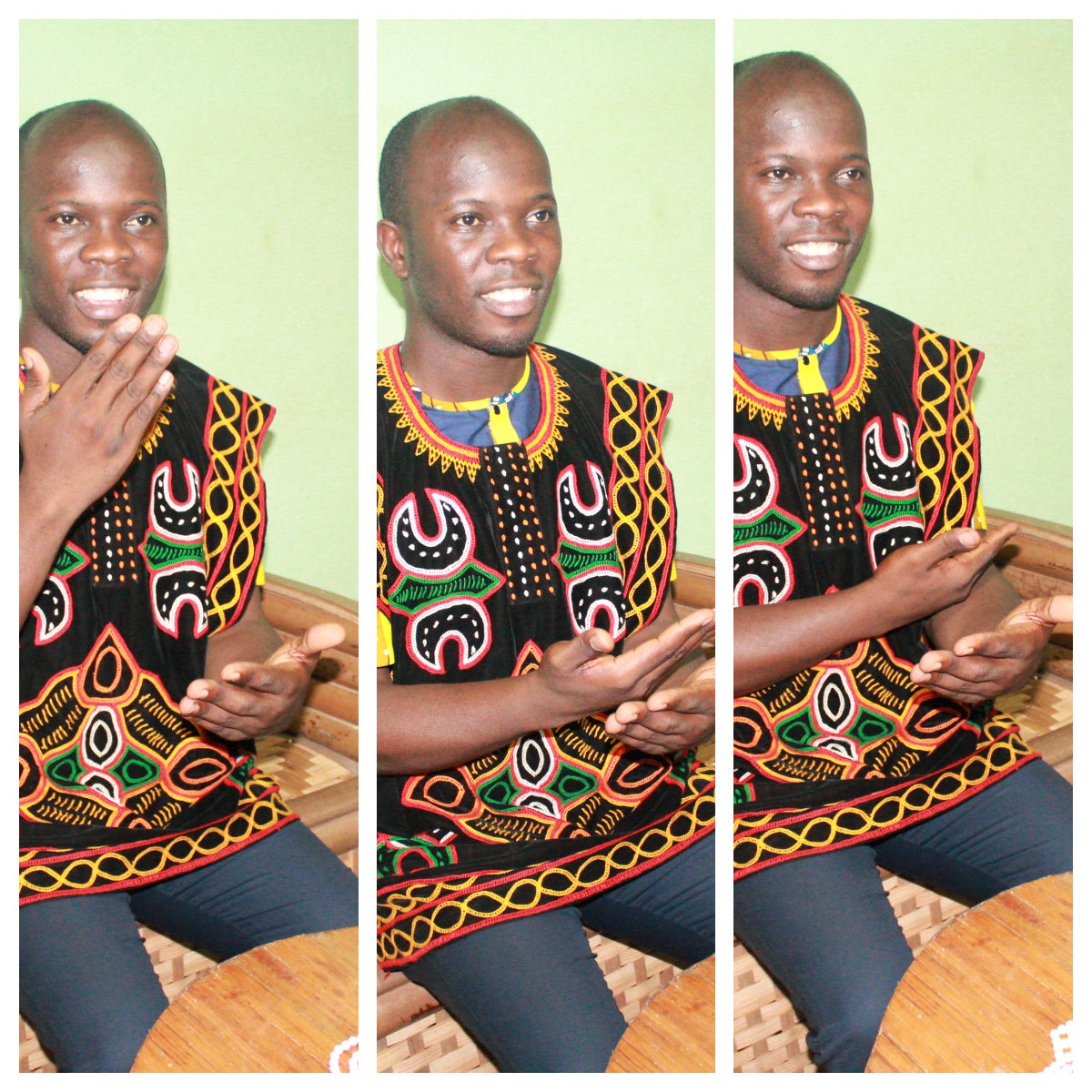 United Youths Organization (UYO) - Wimbum (Cameroon)
United Youths Organization (UYO) - Wimbum (Cameroon)
Limbum language literacy among hearing and speech impaired persons in Ndu municipality
The Wimbum Peoples in Ndu municipality seek to transcribe their Limbum language into sign language to provide hearing and speech impaired persons with an accessible form of communication and a manner to express Wimbum cultural values. UYO will transcribe Limbum grammar, folktales, proverbs and other language components into sign language as well as train ten teachers in Limbum signing.
South Rupununi District Council (SRDC) - Wapichan (Guyana)
Documenting Wapichan stories and traditional knowledge
The Youth Arm of SRDC will launch a Wapichan Story Collection Project to bridge the generational gap between elders and youth in the 21 Wapichan villages of the South Rupununi. The SRDC will produce a book that showcases traditional Wapichan stories, traditional knowledge of their environment, and document Wapichan language and culture. The books will be provided for use in community schools, and will be serve to provide evidence of the history of land use by the Wapichan people for reference in a land titling process between the Wapichan Peoples and the Guyana government.
Cabildo Indigena comunidad Ziora Amena - Tikuna, Muina Murui, Muinane, Bora, Andoque, Kokama (Colombia)
Creating maps of the Ziora Amena community
The Muina Murui, Tikuna, Muinane, Bora, Andoque, and Kokama Peoples are combating deforestation, hunting, fishing, and harmful tourism within their land by producing official cartography of the territory. These maps will document which land is under the jurisdiction of the Ziora Amena community and enable the community to develop conservation strategies of natural resources as well as facilitate economic opportunities.
Asociación Comunitaria de Desarrollo Integral Maya Mam (ACODIM-M) - Maya mam (Guatemala)
Strengthening the Maya Mam Council of Elders and Spiritual Guides in San Ildefonso Ixtahuacan
The Maya-Mam community of San Idelfonso, Ixtahuacan, Huehuetenango seeks to revitalize Mayan traditional governance practices that were systematically dismantled by the State during the Guatemalan Civil War. ACODIM-M will work with elders in the community to re-initiate and strengthen the Maya Mam Council of Elders and Spiritual Guides to play a major role in community leadership and decision-making.
Unión de Organizaciones de la Sierra Juárez, Oaxaca, Sociedad Civil (UNOSJO) - Xidza - Zapotec (Mexico)
Defending the land and strengthening community
The Zapotec Xidza Peoples have suffered from land encroachment by mining companies and external megaprojects that threaten their rights and livelihoods. The Lienzo de Tiltepec is a historic documental canvas that displays genealogies, territorial maps, and environmental, religious, structural, and cultural elements of the region’s Indigenous Peoples. The Xidza community of el Rincón de Ixtlán will preserve and study the Lienzo de Tiltepec to teach youth about its historical and cultural significance and use it to unify communities.
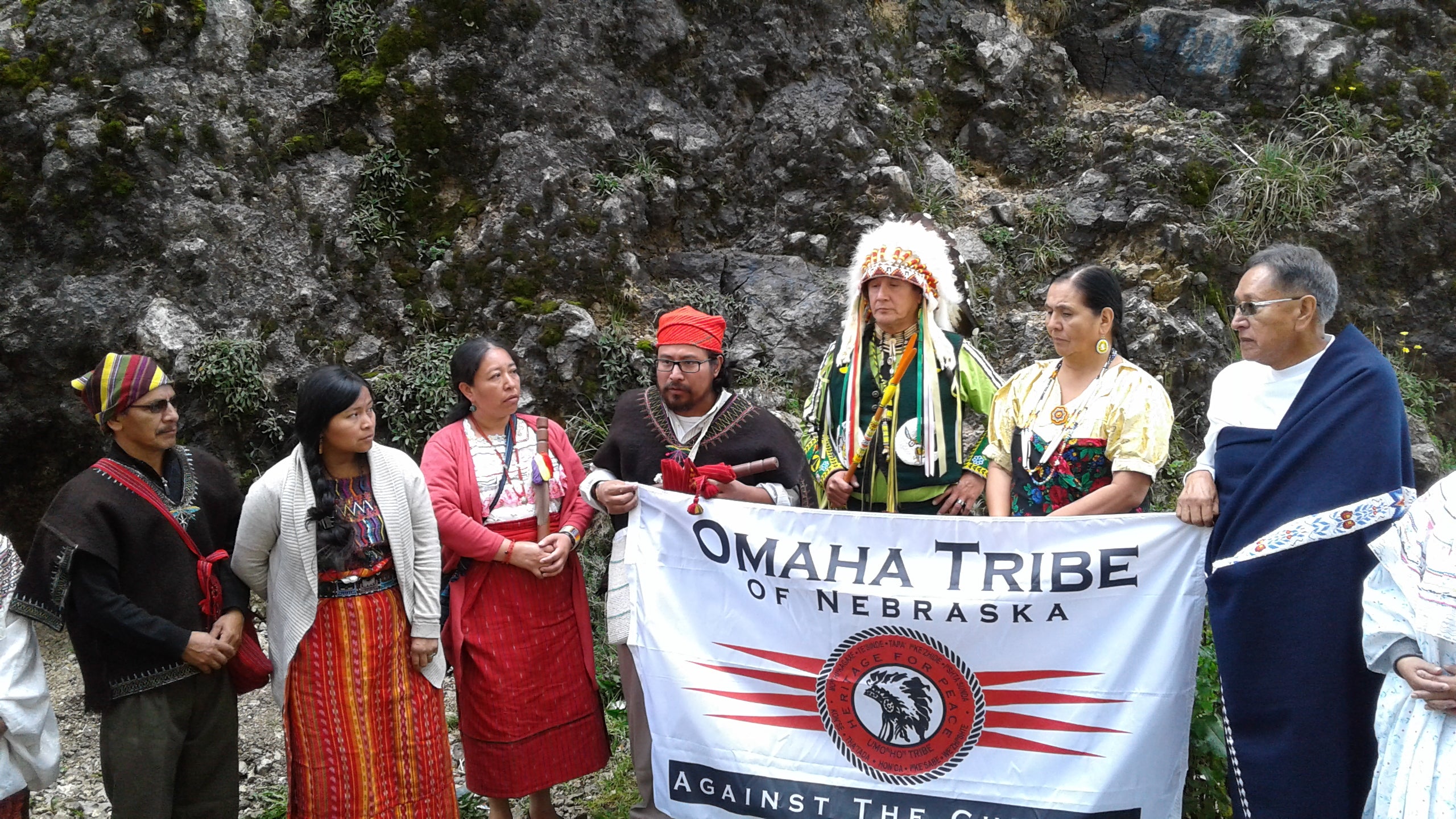
Asociación Maya Pixan Ixim - Maya Q'anjobal, Omaha (Guatemala / United States of America)
Meeting Nation to Nation: The Q’anjob’al Maya Government and the Omaha Nation
While living in diaspora in Nebraska, USA, a Q’anjob’al Maya Indigenous community from Guatemala has developed a bilateral relationship with the Omaha Nation. In order to advocate for the rights of both Indigenous Nations, project funds supported travel costs to host a historical summit in Guatemala between the two Indigenous Nations. The summit facilitated intergovernmental dialogue on upholding the rights and cultures of the Maya Q’anjobal and the Omaha Nations and agreements to seek economic development and immigration programs beneficial to both Nations.
Comité de Defensa del Territorio de Ma Kähä-Santa Mónica - Otomí-Tepehua (Mexico)
Strengthening community water management systems
The Mirasol, Ma Kähä-Santa Mónica, and Mavodo communities have developed water management systems which provide community members with potable water while being respectful of the sacred lands of Maka Dehe and upholding the long-standing cultural and religious traditions associated with the region’s water sources. The Comité de Defensa del Territorio de Ma Kähä-Santa Mónica was formed to combat municipal authorities’ violation of the communities’ inherent right to regulate their water sources. Funds will be used to strengthen and formalize the management systems and produce documentation on specific regions and water systems managed by Indigenous Peoples.
Comunidad de San Lorenzo Jilotepequillo, Santa María Ecatepec, Yautepec Oaxaca - Chontal (Mexico)
Constructing a greenhouse to maintain the Chupa Rosa agave species
Chupa Rosa agave is native to the region where the San Lorenzo Jilotepequillo community lives. Due to an increase in demand for Mezcal and agave syrup, as well as the cultivation of agave Espadín on land traditionally used for Chupa Rosa agave, this species faces the risk of extinction. The Comunidad de San Lorenzo Jilotepequillo will construct a greenhouse to grow and preserve Chupa Rosa agave, which is environmentally and culturally vital to Oaxaca for material and medicinal purposes.
Coordinadora de Comunidades Mapuche-Williche “Willi Lafken Weychan” (WLW) - Mapuche-Williche (Chile)
Conserving coastal and marine areas using traditional knowledge
The Mapuche-Williche communities are working to conserve coastal and marine bodies from the degradation caused by fishing industries. La Coordinadora will assist communities along the coast of Chile to register and seek authority over the lands through the Chilean government’s conservation program, with the goal to implement autonomous traditional Indigenous conservation efforts in Mapuche-Williche communities. This initiative will facilitate communication between Indigenous and non-Indigenous Peoples that share the land and promote sustainable management of local natural resources.
Associação Indígena Pariri - Munduruku (Brazil)
Demarcating and protecting Munduruku del Valle del Tapajós
The Munduruku Peoples are fighting against the exploitation of lands they have occupied for more than three centuries. The Brazilian government has initiated megaprojects on Munduruku land to facilitate economic development while timber, mining, and palm oil companies illegally encroach on the land and ravish its natural resources. The Munduruku are launching land demarcation project of three territories: Tierra Indígena Sawre Muybu, Tierra Indígena Sawre Apompu, and Tierra Indígena Sawre Jaybu, to establish concrete borders of Munduruku territory and facilitate formal, governmental recognition of their land rights.
Cordillera Peoples Alliance (CPA) - Kalinga (Philippines)
Strengthening Kalinga Indigenous Peoples’ defense of the Chico River
The CPA is collaborating with the Kalinga Peoples of Kalinga province to launch the “Let the Chico River Flow Free” campaign and educate Indigenous communities on their rights to Free, Prior and Informed Consent. A series of hydropower projects catering to the development agenda of the Philippine government currently threatens both the environment of Indigenous land and the livelihood of the Kalinga Peoples. The newest Chico River Project, a $60 million (USD) effort to capitalize on the Chico River for dam and hydropower construction, encroaches on Indigenous land and will initiate a process of militarization in order to protect the government’s investments. The Project did not obtain FPIC of the Kalinga, who now confront the loss of their land and multiple human rights violations by the Philippine military. The CPA will develop training seminars on FPIC, leadership and governance for community members and will organize a conference on hydropower projects and Indigenous Peoples’ rights to develop the “Let the Chico River Flow Free” campaign and initiate communication between local, regional and national governments to implement the campaign’s values.
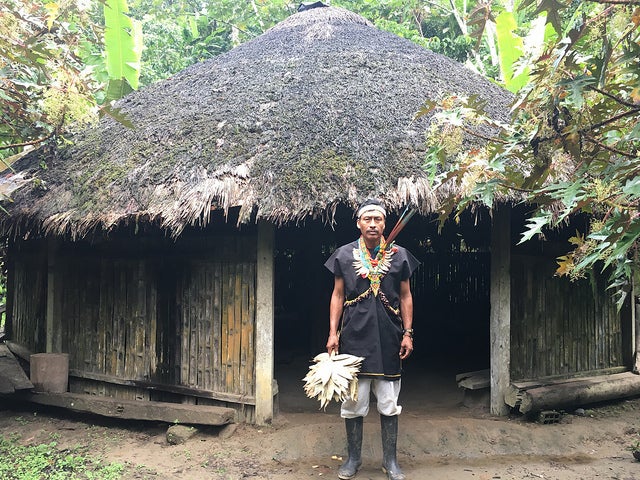 Unión de Médicos Indígenas Yageceros de la Amazonía Colombiana (UMIYAC) - Siona, Inga, Cofán,Coreguaje, Kamentsá (Colombia)
Unión de Médicos Indígenas Yageceros de la Amazonía Colombiana (UMIYAC) - Siona, Inga, Cofán,Coreguaje, Kamentsá (Colombia)
Building strength and unity through community gatherings and ceremonies
The Inga, Siona, Coreguaje, Cofán and Kamentsá Peoples have suffered from years of violence by paramilitaries, guerilla warfare, and narco traffickers during Colombia’s Armed Conflict. UMIYAC desires to revitalize and reinforce ancestral practices through traditional Indigenous healing ceremonies and community gatherings. These gatherings will strengthen communities by renewing a collective appreciation for spiritual and medicinal traditions that provide emotional support and resiliency to victims of trauma and foster peace throughout Indigenous territories.
Education for Sustainable and Rural Development Foundation (ESARDEF) - Ekpe (Cameroon)
Restoring the ‘‘Ekpe’’ sacred plantain meal through plantain growing
The Ekpe are working to strengthen traditional values through the restoration of their sacred meal, the ndum ehore plantain species, which was wiped out due to drought. Custom dictates that “he who cultivates, prepares or eats the meal especially during ceremonies and festivities, is proud of his cultural roots, identity, and above all is a lover of peace and unity, for the sacred meal is a symbol of peace and unity.” ESARDEF will train community members on the propagation of these endangered plantains, an ingredient vital to the meal’s creation.
Sapichay - Wanka, Chanka, Ashaninka, Ya’nesha, Awajun, Kana, and Quechua (Peru)
Uniting rural and urban Indigenous communities
Sapichay is working to unite the rural and urban communities of the Wanka, Chanka, Ashaninka, Ya’nesha, Awajun, Kana and Quechua by creating an Indigenous-led rapid response network, A W A Y (Quechua for “to weave”). A W A Y will draw upon the shared value systems to support rural communities and facilitate communication between urban and rural members. Sapichay intends to nurture this solidarity in order to advocate for Indigenous rights and raise awareness of human rights violations through social media campaigns.
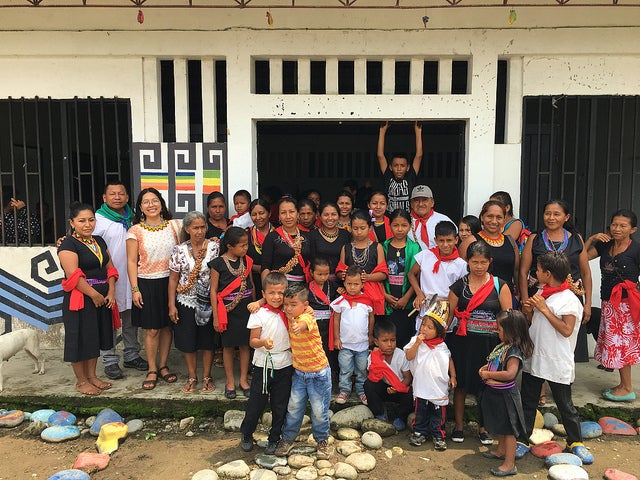
Resguardo Inga San Miguel de la Castellana - Inga (Colombia)
Strengthening the Inga language among the children and youth of Resguardo San Miguel de la Castellana
The parents, grandparents, and elders of the Inga community fear that their ancestral language, which is integral to Inga cultural and spiritual identity, faces gradual decline amongst the younger generation. The Inga will hold a series of community gatherings which will teach seventy Inga children and youth will be taught the maternal language, its linguistic and cultural components, and will produce didactic materials for future language instruction with the support of an Inga linguist.
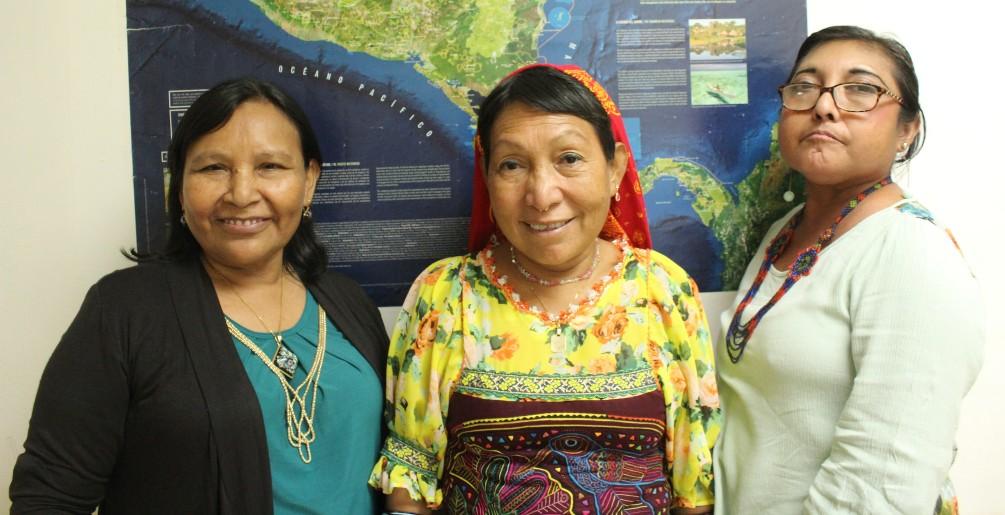 Organización de Mujeres Indígenas Unidas por Biodiversidad de Panamá (OMIUBP) - Guna, Embera/Wounaan (Panama)
Organización de Mujeres Indígenas Unidas por Biodiversidad de Panamá (OMIUBP) - Guna, Embera/Wounaan (Panama)
Strengthening systems of Guna and Embera/Wounaan governance
OMIUBP will launch an initiative to raise awareness among Guna and Embera/Wounaan communities on Free, Prior and Informed Consent and Panamanian Law #37, which dictates that businesses, universities, and other institutions interested in pursuing projects on Indigenous lands must comply with FPIC. By solidifying the knowledge of FPIC as an advocacy tool, OMIUBP will increase the communities’ capacity to fight outside encroachments on their land. This is the second year of their grant.
Centro de Derechos Indígenas (CEDIAC) - Tseltal, Tsotsil, Ch’ol (Mexico)
Constructing alternative modes of governance in Tseltales communities
CEDIAC is working on a unifying system of governance for 350 Tseltal Indigenous communities in the municipality of Chilón. The current political party model that characterizes the governing apparatus is divisionary and unorganized. CEDIAC’s project will draw upon ancestral governance bodies in order to reinstate a community government that advocates for greater autonomy and self-governance for the Tseltal Peoples.
Alliance of Indigenous Peoples Archipelago - Kampar (AMAN-KAMPAR) - Kampar (Indonesia)
Strengthening conservation of the Subayang River as sacred places
Lubuk Larangan (Prohibition Holes) are areas in the Subayang River deemed sacred by the Kampar Peoples where fishing is prohibited during certain times of the year. This traditional practice is vital to conservation efforts in the region, yet economic development has encroached on Lubuk Larangan, threatening both the cultural values of the Kampar Community and the ecosystems they strive to protect. AMAN-KAMPAR will strengthen conservation efforts across Kampar communities and legitimize initiatives by enlisting local government protection of their land. The project will produce concrete documentation of the spiritual, historical, and environmental significance of their traditional conservation practice in order to advocate for legislative policy that guarantees adherence.
Agrointroductions Ghana - Wala, Dagaare, Lobi (Ghana)
Enhancing community resource management by saving the Wechiau sacred hippo
The Wala, Dagaare, and Lobi Peoples of the Wechiau community seek to protect the hippopotamus population that resides on their territory, as it is considered a sacred element in their culture. In recent years, the hippo population has dwindled due to poaching, mining, tree felling, and general land exploitation. Agrointroductions Ghana will use funds to strengthen Indigenous by-laws that govern conservation efforts, increase species biomonitoring proficiency among the community members, and conduct awareness campaigns that grow public awareness for both the hippo population and for Wala lifeways and traditional knowledge around hippo conservation.
Indigenous Women League Nepal (IWL Nepal) - Bote, Bakariya (Nepal)
Protecting the right to food of the Bote and Bankariya Indigenous Peoples
The Bote and Bankariya Peoples of Makawanpur district are fighting for their right to land and food security due to impending displacement. The Parsa Wildlife Conservation Area is attempting to remove the Bote and Bankariya Peoples from their lands and has restricted access to regions with natural resources vital to feeding Indigenous communities. IWL will work to unite the Bote and Bankariya Peoples to defend the livelihood of their communities by forming a land struggle committee and conducting trainings on legal procedures that advocate for their rights. IWL will initiate campaigns that target both local and federal governing bodies, advocating for Bote and Bankariya’s inherent rights to access ancestral lands and to prevent the unjust displacement.
Wôpanâak Language Reclamation Project - Assonet Band, Aquinnah, Herring Pond, and Mashpee (United States)
Constructing Wôpanâôt8âôk Weety8 (The Wampanoag Language House)
The Wôpanâak Language Reclamation Project is working to construct a yurt that will house the Wôpanâôt8âôk Weety8 (The Wampanoag Language House) so that Wampanoag children can learn in an environment that immerses them in the Wôpanâak language. The Language House will educate students in grades 1- 4 and expand their student population to 35. It will serve as a center for community meetings, ceremonial gatherings, language immersion camps, after school programming, and enable adults to enroll in classes.
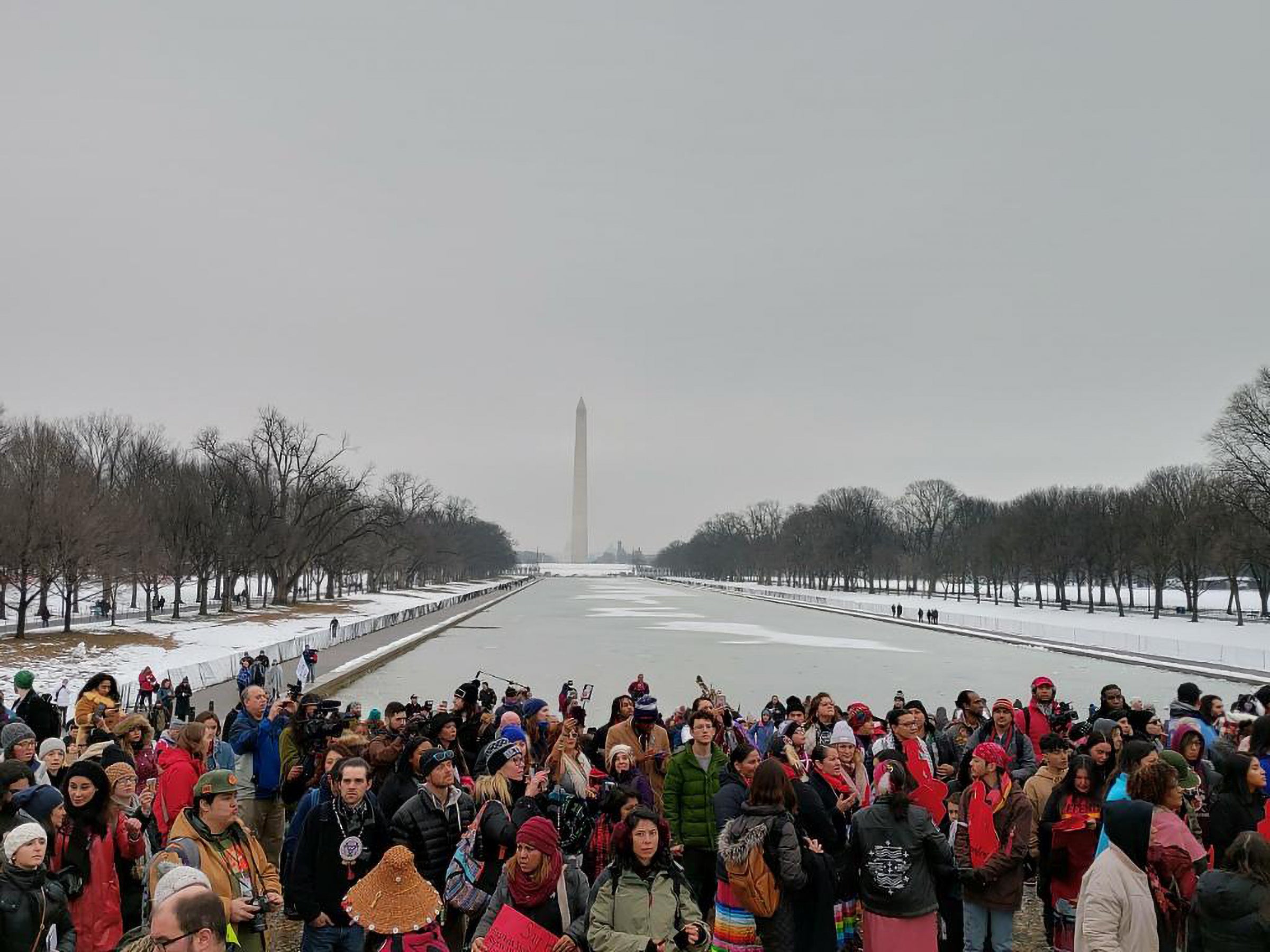 Indigenous Peoples Movement - (United States)
Indigenous Peoples Movement - (United States)
Inaugural Indigenous Peoples March
On January 18, 2019, Indigenous Peoples from all over the globe marched together to bring awareness to the injustices affecting Indigenous men, women and children at the international Indigenous Peoples March in Washington, D.C. The Indigenous Peoples Movement is a collective of Indigenous activists, organizers, Tribal leaders, social entrepreneurs, artists, educators, innovators, youth leaders, and change-makers who are working to build the collective power of Indigenous Peoples, communities and Nations.
